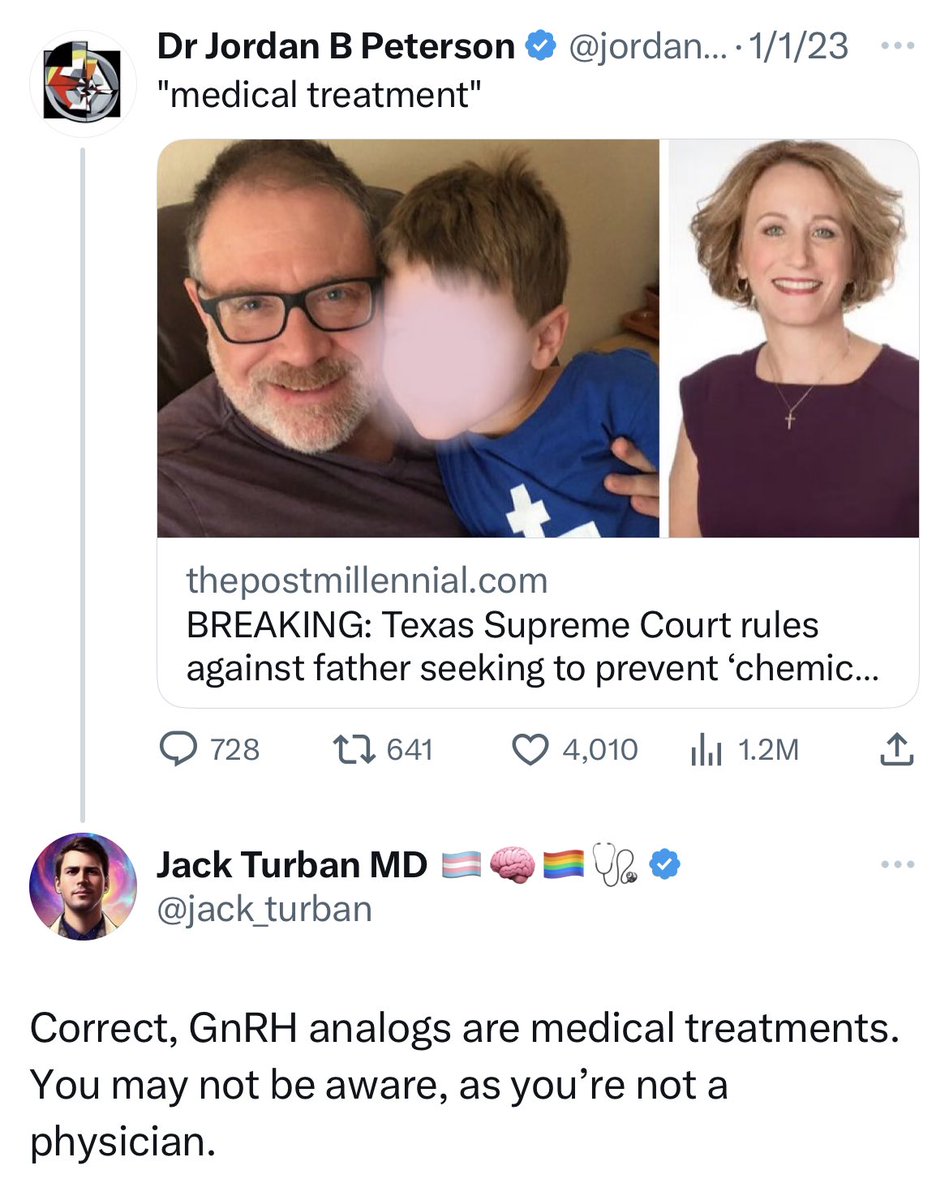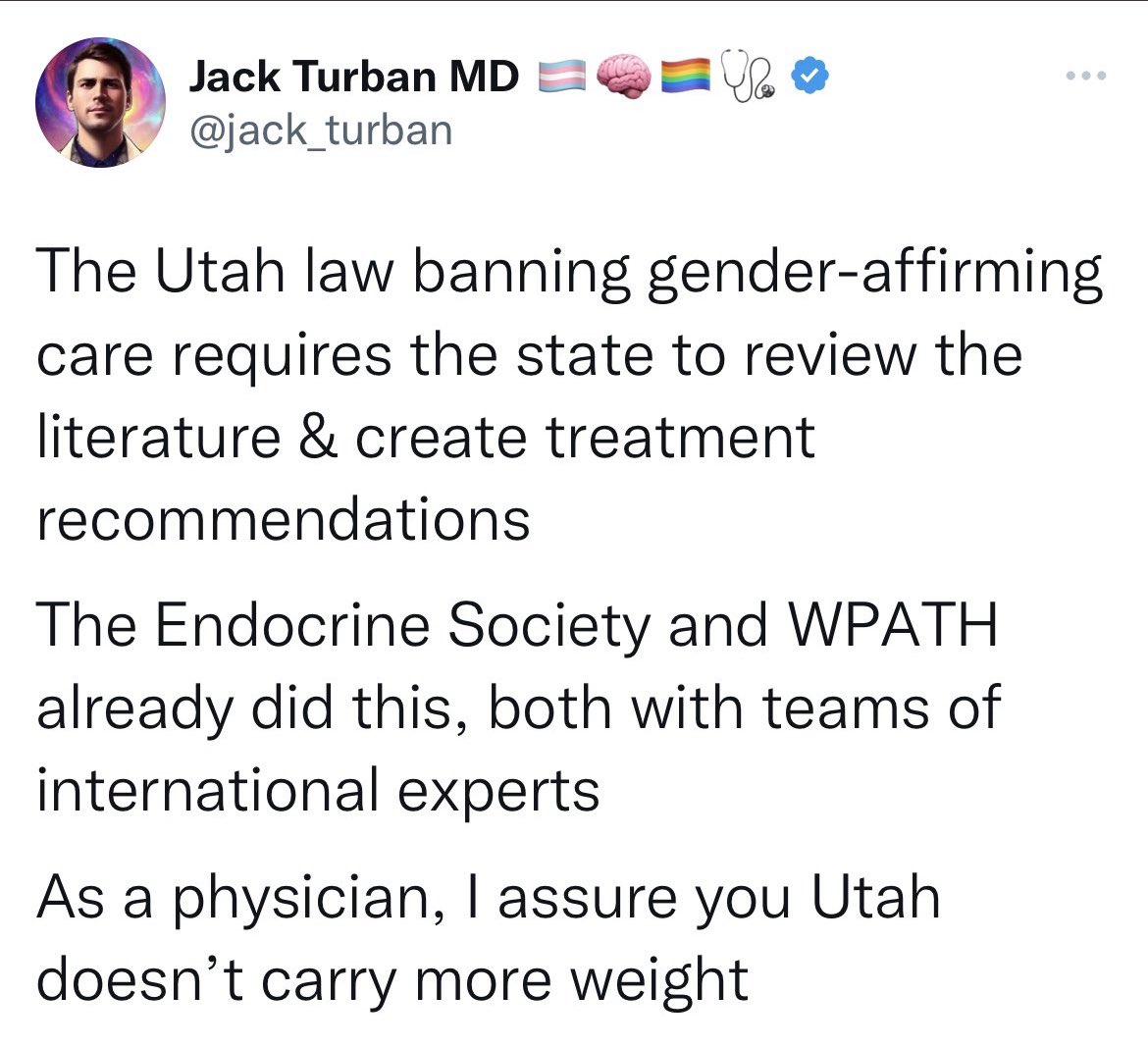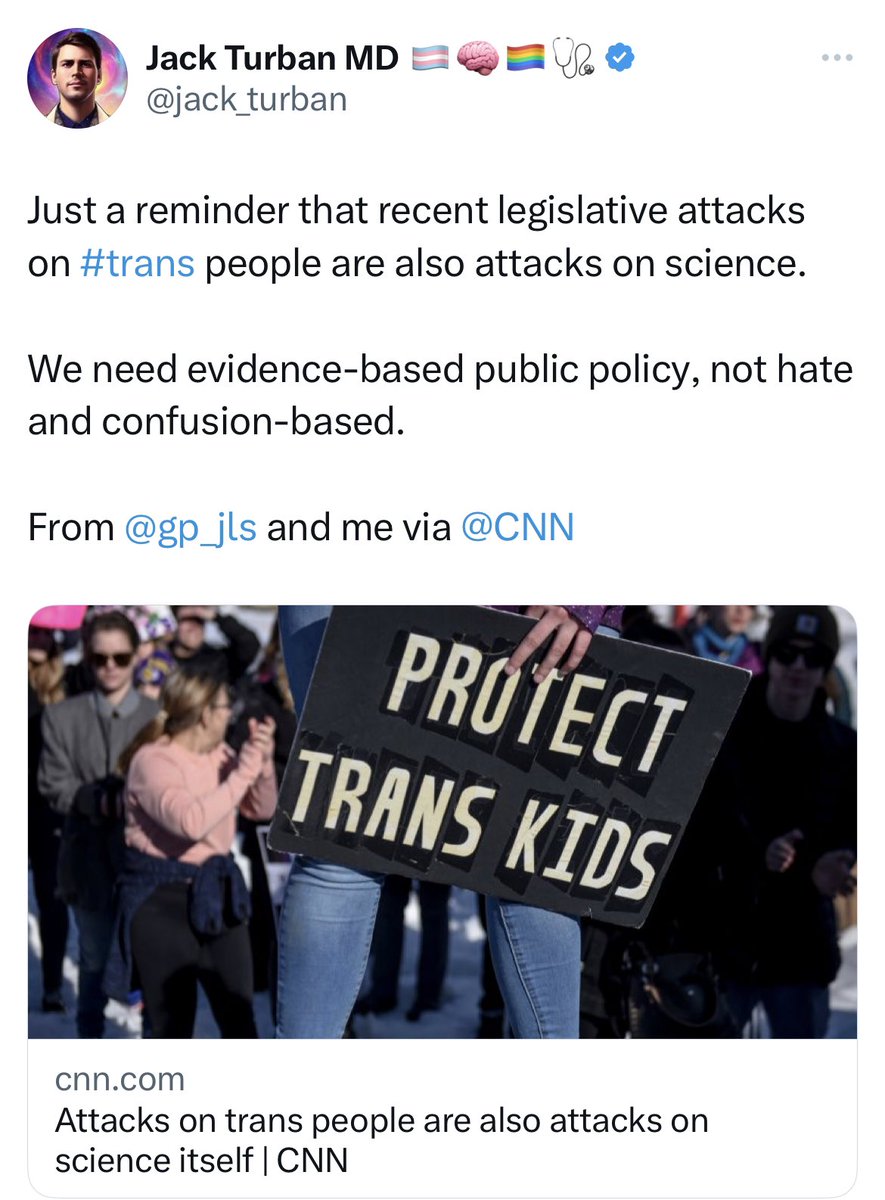
The debate over pediatric gender medicine is rarely substantive. Typically, defenders of "gender affirming care" (GAC) use appeals to authority in place of evidence-based arguments. They point out, for instance, that GAC has the support of most American medical organizations. 🧵
Jack Turban (@jack_turban) is one of the more prominent names in GAC and a repeat offender of the appeal-to-authority tactic. He routinely dismisses substantive criticisms of GAC from people who are not MDs practicing GAC on the grounds that these critics lack the requisite… twitter.com/i/web/status/1… 



Turban says that GAC is evidence-based medicine. He believes the European systematic reviews, which find the certainty of evidence behind GAC to be “very low,” can be ignored because WPATH and Endo Society have done them, and presumably done them better. Turban also agrees that… twitter.com/i/web/status/1… 





In her recent report for @bmj_latest, @writingblock interviewed two experts in evidence based medicine (EMB), including one of its founders and a scholar who helped develop the GRADE system of evidence evaluation. This is the system used, for instance, in bmj.com/content/380/bm…… twitter.com/i/web/status/1…
Both experts found the guidelines/ recommendations of the organizations Turban cites to be consensus- rather than evidence-based.
That consensus, by the way, is *not* of all members of these medical groups or even of experts within pediatric gender medicine. Rather, it’s the consensus of those who participate in the writing of these documents.
In the case of the AAP, the policy position was written by a single doctor and pushed through a very non-rigorous process of “review” by a handful of other doctors.
thefp.com/p/the-hijackin…
thefp.com/p/the-hijackin…
When pediatricians petitioned the AAP for a systematic review, their resolution was one of the most engaged with items among members.
wsj.com/articles/the-a…
wsj.com/articles/the-a…
Any claim about the AAP’s position on this issue being representative of what its 67,000 members think or want is absolutely without foundation, especially in light of the AAP’s repeated efforts to thwart internal debate and discussion on gender medicine.
Thus, even “consensus-based guidelines” is being generous. But let’s assume the term is fair and accurate enough.
Although consensus-based guidelines have their place in medicine, one of the EBM experts explained in the BMJ piece, it’s important that we “don't call them evidence based." The distinction is essential to good medical practice and public policy.
Question for Jack Turban: Given your beliefs about expertise, deference, and public debate, and your lack of expertise in EBM relative to the experts interviewed in the BMJ piece, shouldn't you agree that GAC is not evidence based?
It’s time to move past the superficial and distorting appeals to what U.S. medical organizations *say* about GAC. It’s time to examine those statements in light of the standards of EBM.
@PLOSONE I hope you’re paying attention. Would be a shame to tarnish your reputation.
• • •
Missing some Tweet in this thread? You can try to
force a refresh






